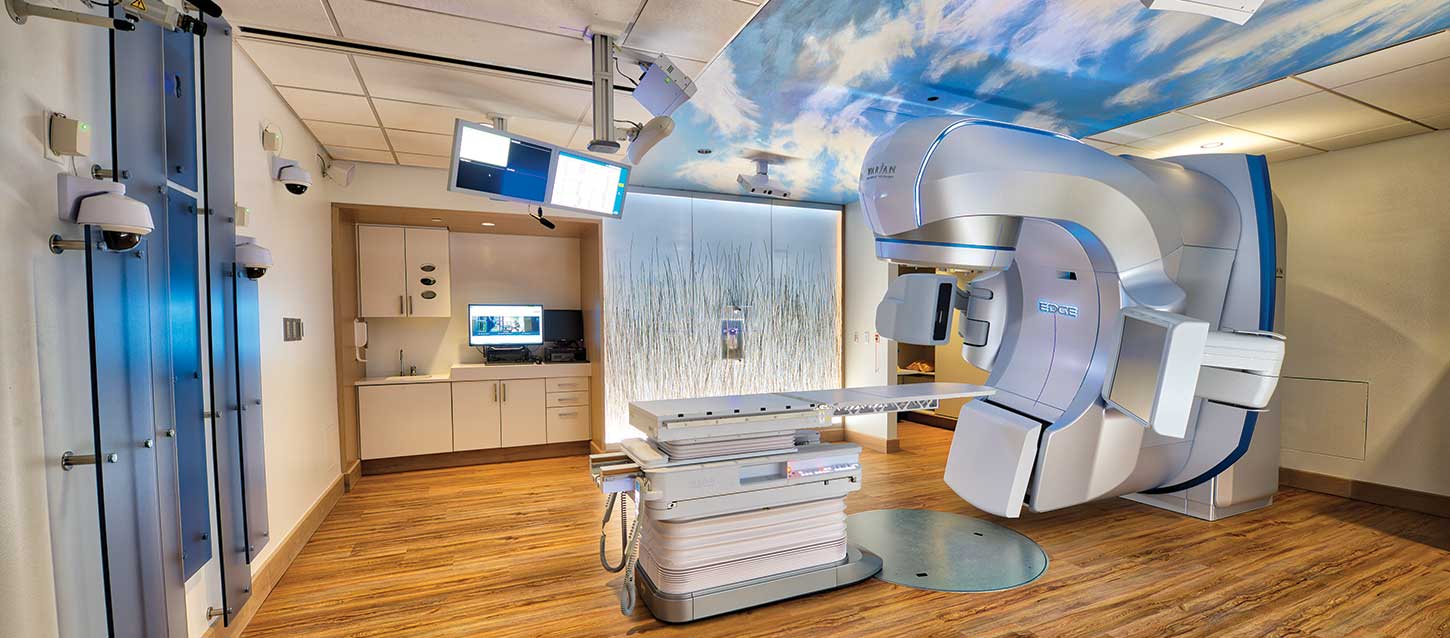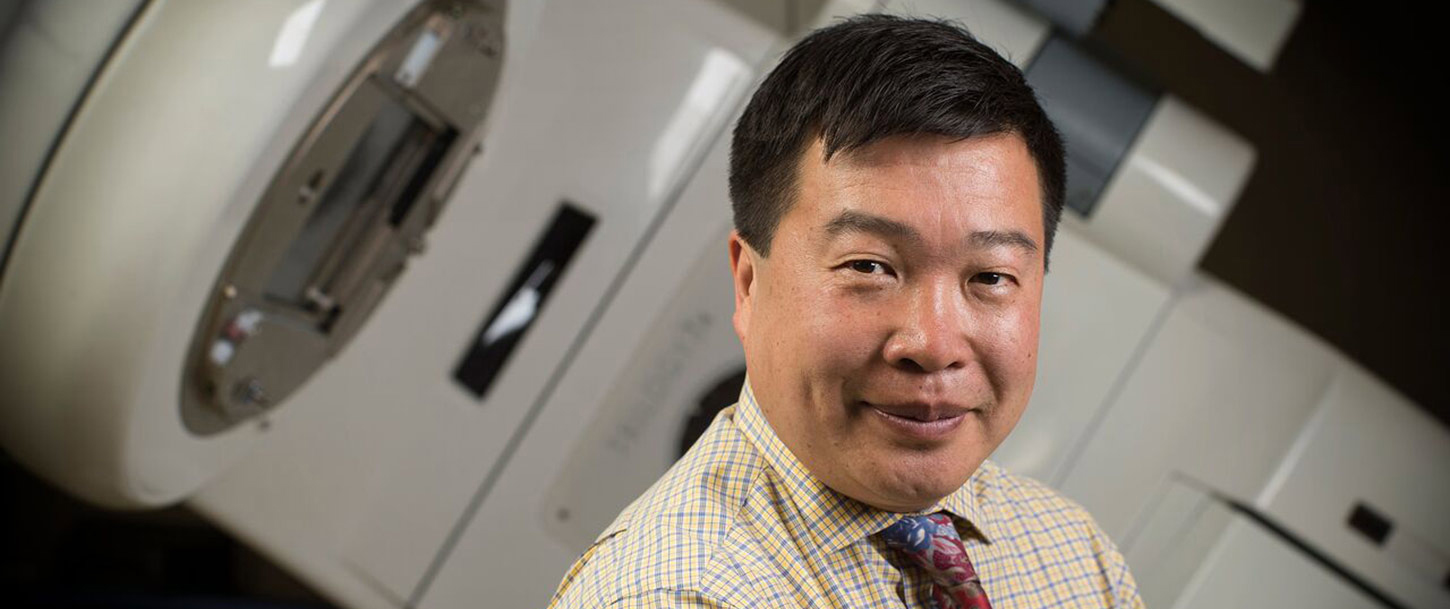Radiation Therapy
Mass General Cancer Center at Wentworth-Douglass Hospital

Radiation Oncology
Radiation oncology, also known as radiation therapy, can be used to effectively and safely treat all types of cancer, including breast cancer, head and neck cancer, lung cancer, colorectal cancer, gynecological cancer, gastrointestinal cancer, central nervous system tumors and prostate malignancies.
We offer radiation oncology at our locations in Dover and Portsmouth. That means you can stay close to home in New Hampshire for your radiation therapy, including all of the latest in advanced treatments.
Our team of nationally-recognized board certified radiation oncologists from Radiation Oncology Associates, P.A., include physicians who have been active in international cancer care and research, clinical research and teaching at notable schools like Harvard Medical School and Dartmouth Medical School.
The radiation oncology team uses state-of-the-art radiation therapy equipment and technologies alone, or in combination with, other therapies such as chemotherapy, biological therapy or surgery. Wentworth-Douglass is the first hospital in the region to have the newest Varian Edge Linear Accelerator, which enhances the radiation therapy options and makes them available to more patients. It delivers accurate and aggressive cancer treatments to tumors of the lung, brain, spine, and other areas of the body – pinpointing tumors with the highest dose rate available for faster treatment times.
Radiation therapy targets the genetic material within cancer cells, limiting their ability to successfully reproduce. When damaged cancer cells die, the body eliminates them naturally.
Advanced treatments spare healthy tissues while more aggressively targeting cancerous tissues.
High Dose Rate Brachytherapy (HDR)
High dose rate brachytherapy uses radioactive seeds or sources, placed in or near a tumor, to give a high radiation dose to the tumor while reducing radiation exposure to the surrounding healthy tissues.
Intensity Modulated Radiation Therapy (IMRT), Stereotactic RadioSurgery (SRS), and Stereotactic Body RadioTherapy (SBRT)
These therapies are additional treatments that more aggressively target cancerous tissues while sparing healthy tissues.
To better inform future clinical decisions and forward-thinking healthcare policies, Wentworth-Douglass Hospital is affiliated with NRG Oncology, a non-profit research organization that conducts oncologic clinical research and broadly disseminates study results.
What Radiation Therapy Does
Depending on the type of cancer and how advanced it is, radiation therapy may be used:
- To cure the cancer. Cancer is considered cured when the patient remains free of evidence of cancer cells.
- To make the tumor smaller in a specific area of the body.
- To control the cancer by slowing its growth and killing cancer cells that may have spread to other parts of the body from the original tumor.
- To relieve or palliate cancer symptoms by shrinking tumors and reducing pressure, pain and other cancer symptoms to improve quality of life.
How Radiation Therapy Works
Usually done as an outpatient at the Mass General Cancer Center at Wentworth-Douglass Hospital, radiation therapy can be given externally, outside the body, or internally, inside the body. Some patients will be candidates for both types of radiation therapy.
External Beam
Radiation generated externally by a linear accelerator is directed to a specific area of the body. Treatment takes about 15 to 20 minutes and will be prescribed for between 10 to 42 days.
Brachytherapy
An advanced cancer treatment in which radioactive seeds or sources are placed in or near the tumor.
Stereotactic Radiosurgery
A specialized type of external treatment which delivers precise high dose targeted radiation to a specific area.

Our Radiation Therapy Team
- Radiation oncologists, from Radiation Oncology Associates, P.A., specialize in using radiation to treat cancer.
- Radiation physicists make sure the equipment is working properly and the machines deliver the right dose of radiation.
- Dosimetrists follow your prescribed treatment plan to help calculate the amount of radiation to be delivered to the cancer and normal nearby tissues.
- Radiation therapists deliver the daily radiation treatment, maintaining daily records and regularly checking the treatment machines, to make sure they operate correctly.
- Radiation nurses coordinate care, help you learn about treatment and manage side effects. They also are available to answer questions you or family members may have about your treatment.
Working together to help you return to your best health.
Contact Us
Mass General Cancer Center at Wentworth-Douglass Hospital
789 Central Ave.
Dover, NH 03820
Phone: (603) 742-8787
Get DirectionsContact Us
Mass General Cancer Center at Wentworth-Douglass Hospital
121 Corporate Drive, Suite 100
Portsmouth, New Hampshire 03801
Phone: (603) 742-8787
Get Directions